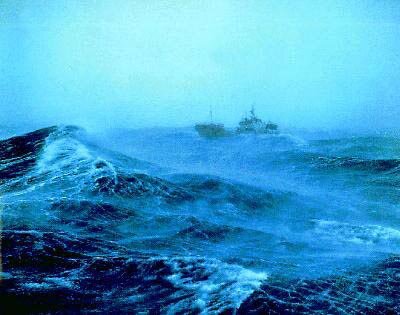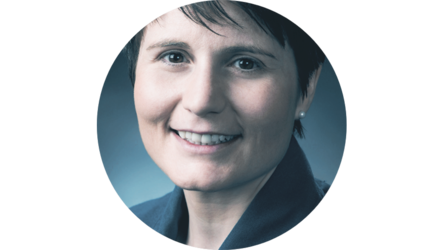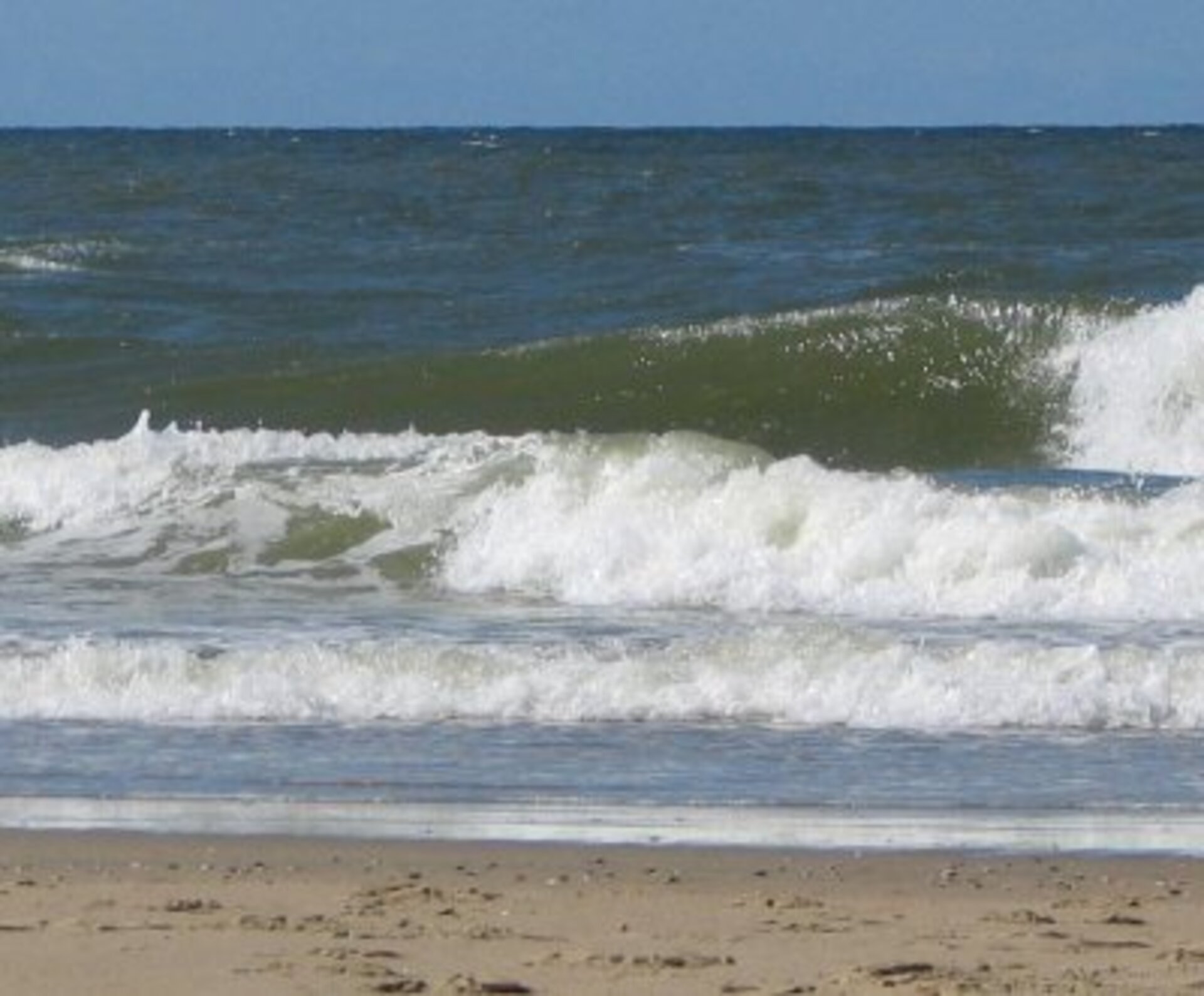The Moon and the ocean
You have probably noticed that the ocean is not always at the same level: two times per day the water level seems to rise and to fall – a phenomenon called a tide.
When people first went to sea, many thousands of years ago, they studied the phases and motions of the Moon to predict the state of the tide in different harbours. Why did they do this? Does the Moon have an influence on the oceans here on Earth?
Preparation:
Answer the following questions:
- Do you know how far the Moon is from the Earth? Is it always at the same distance?
- Does the Earth attract the Moon? If so, what is this force called?
- Does the Moon attract the Earth? If so, do we notice its influence?
- Does the Sun attract the Earth??

Activity 1: When is the tide higher: in case 1 or in case 2? Why?

Activity 2: To measure the importance of a complete tide, we use the tide coefficient: a number between 20 for very small tides and 120 for very big ones. This coefficient is important for all people in relation with the sea:
- a scuba diver in the Atlantic preferably goes diving when the tide coefficient is low (less than 80) and the ocean is quiet: he can see better under water and there are fewer currents.
- a surfer prefers a higher tide coefficient and higher waves to surf on!
- for a fisherman, it shouldn’t be too high or the waves may become dangerous. For him, other criteria like the force of the wind are also important.

Eric, Iñaki and Nicole are going on holidays to Biarritz on the Atlantic Coast in the South of France. They choose this place because each of them can pursue his/her favourite hobby: Eric loves surfing, Iñaki is fond of sea fishing, and Nicole enjoys scuba diving. But they still need to decide about the dates of their holidays: They have a choice between the week from the 1st to the 7th of July (1st solution) or the 4th to the 10th of July (2nd solution).
Form groups of 4 students and try to help them plan their holidays! You can use the table below showing tide coefficients. When should Eric go surfing? Nicole scuba diving? And Iñaki fishing?

Extra difficulty (optional): try to take into account their particularities: Nicole would prefer to go the beach in the afternoon, Eric doesn’t like to wake up early, Iñaki gets sick easily in a boat, so the sea should be as quiet as possible when he goes fishing. They all would like to have lunch and dinner together at noon and at 07:00 pm.
Conclusions: Each group gives its advice for planning the hobby activities of Eric, Nicole and Iñaki during their holidays in Biarritz. Discuss:
- Should they choose the 1st or the 2nd solution for the dates? Why?
- Who will be able to spend most time enjoying his/her hobby?
- Would it be better for Eric to go in the morning?
- Would it be better for Nicole to go in the afternoon?
- Do you think that Nicole, Eric and Iñaki know that the Moon has an influence on their holidays?















 Germany
Germany
 Austria
Austria
 Belgium
Belgium
 Denmark
Denmark
 Spain
Spain
 Estonia
Estonia
 Finland
Finland
 France
France
 Greece
Greece
 Hungary
Hungary
 Ireland
Ireland
 Italy
Italy
 Luxembourg
Luxembourg
 Norway
Norway
 The Netherlands
The Netherlands
 Poland
Poland
 Portugal
Portugal
 Czechia
Czechia
 Romania
Romania
 United Kingdom
United Kingdom
 Slovenia
Slovenia
 Sweden
Sweden
 Switzerland
Switzerland





























